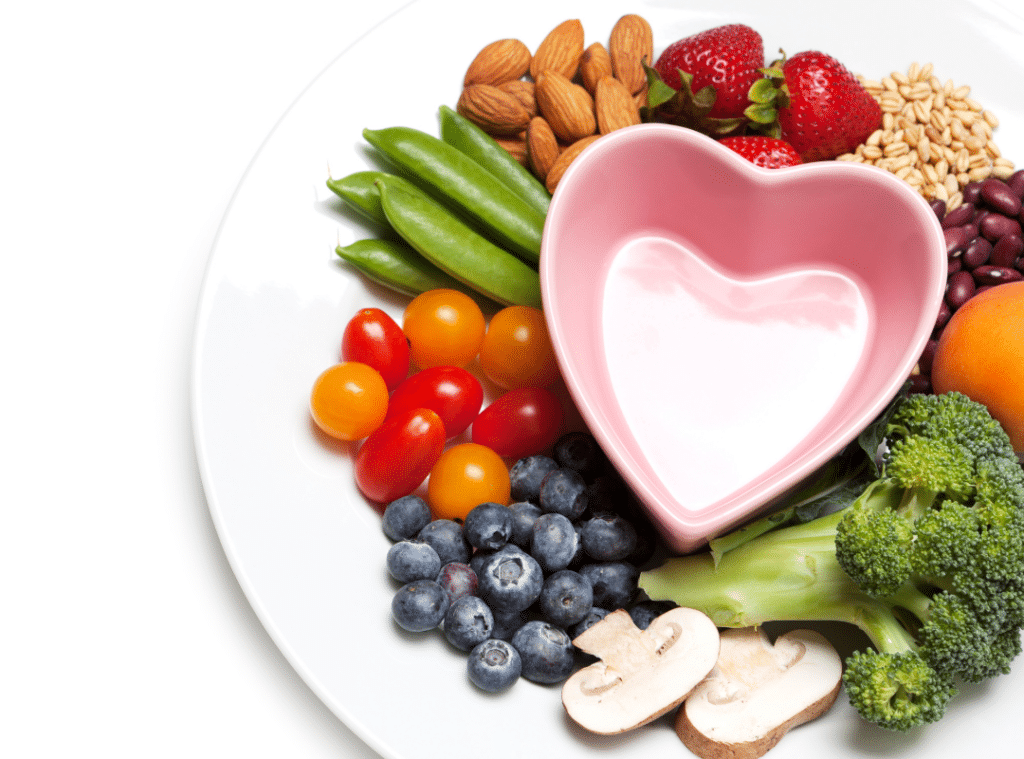Proper nutrition for older adults is one of the most influential factors in maintaining long-term health, mobility, and quality of life. As the body changes with age, nutritional needs also shift—making it essential to focus on the right foods, proper portions, and healthy habits. At Westmont of La Mesa, we understand that healthy aging begins with daily choices that nourish both mind and body.
From adopting strategies to improve nutrition in the elderly to understanding the importance of nutrition, making informed dietary decisions empowers seniors to stay active and independent. Whether you’re developing a diet plan for older adults over 65 or exploring a practical 7-day meal plan for the elderly, simple adjustments can lead to meaningful results.
Visit us at Westmont of La Mesa to explore how our community prioritizes wellness, vitality, and whole-person care.
Understanding Nutritional Needs in Older Adults
Understanding seniors’ nutritional needs helps create diets that promote longevity, energy, and resilience. Cultural influences often shape lifetime eating habits, so incorporating familiar foods can improve adherence to healthier routines. Recognizing individual preferences also makes it easier to implement personalized strategies to improve nutrition in the elderly, especially when addressing conditions such as heart disease, diabetes, or decreased appetite.
By respecting cultural identities and health considerations, you can better apply the importance of nutrition in the elderly in everyday meal planning. Furthermore, good nutrition plays a decisive role in reducing the risk of chronic disease and extending life expectancy for seniors.
Essential Nutrients for Healthy Aging
As nutritional needs change, choosing the right balance of proteins, vitamins, and fiber becomes essential. Customized meal planning—similar to a 7-day meal plan for the elderly—can simplify decisions and ensure older adults receive the nutrients needed to thrive. Additionally, personalized nutrition plans help address unique health considerations.
Protein for Muscle Health
Protein plays an essential role in preserving muscle mass, mobility, and strength. Lean meats, eggs, beans, and dairy products all help support healthy aging. Spread protein intake across meals to enhance absorption throughout the day. If you’re supporting a loved one, these high-protein foods can become part of your diet plan for older adults above 65, ensuring the body gets what it needs to stay active. Meal prep techniques also help make consistent nutrition easier.
Vitamins for Immune Support
A strong immune system is vital in aging, and vitamins C, D, and E contribute significantly to antioxidant protection and immune strength. Incorporating vitamin-rich whole foods can support the lifelong importance of nutrition in the elderly. Consider adding garlic or ginger for natural immune-boosting support. To further support bone health and immunity, vitamins D and K are especially beneficial.
Fiber for Digestive Wellness
Fiber supports digestion, blood sugar balance, and heart health. A fiber-rich diet plan for old age above 65 typically includes fruits, vegetables, legumes, and whole grains. These foods also fit well into a structured 7-day meal plan for the elderly, providing steady nutrient intake and digestive comfort. A well-balanced diet incorporating fiber promotes vitality, as noted in this article on overall quality of life.
Fiber Guide
| Fiber Source | Benefits | Serving Suggestions |
| Whole grains | Heart support | Oatmeal, brown rice |
| Fruits | Antioxidant-rich | Berries, apples, bananas |
| Vegetables | Low-calorie nutrition | Leafy greens, carrots |
| Legumes | High fiber + protein | Lentils, chickpeas |
Strategies for Maintaining a Balanced Diet
Healthy eating becomes simpler with planning. Start with whole foods, incorporate a variety of colors on the plate, and use herbs instead of salt to enhance flavor. These minor dietary upgrades are effective strategies to improve nutrition in the elderly and can easily be woven into a weekly or monthly plan.
Meal planning also reinforces the importance of nutrition for the elderly, providing seniors with structure, consistency, and confidence in their food choices.

Managing Weight and Portion Control
Portion control is important at every age, but especially for seniors whose metabolism naturally slows over time. Helpful tips include:
- Opt for smaller plates
- Focus on hunger cues
- Pre-plan snacks
- Avoid eating directly from packages
When used consistently, these steps support long-term weight management and can be integrated into a 7-day meal plan for the elderly or a personalized diet plan for older adults above 65.
Overcoming Common Nutritional Challenges
Many seniors experience reduced appetite, difficulty preparing meals, or dietary restrictions. Awareness of these challenges makes it easier to provide targeted support.
Nutritional Deficiencies Awareness
Common deficiencies include:
- Vitamin B12 (nerve health)
- Vitamin D (bone strength)
- Calcium (fracture prevention)
Building balanced meals within a diet plan for older adults above 65 helps prevent these deficiencies while reinforcing the importance of nutrition in the elderly.
Meal Planning Strategies
Meal planning is one of the most practical strategies to improve nutrition in the elderly. Organizing meals weekly minimizes guesswork and supports consistent nutrient intake.
| Meal Prep Tips | Grocery Tips |
| Plan weekly meals | Create a list |
| Batch cook | Shop perimeter first |
| Use simple recipes | Choose seasonal foods |
Hydration Importance
Hydration remains an essential nutrient for older adults. Seniors often experience decreased thirst, making reminders and water-rich foods key. Flavor additions like lemon or cucumber can make hydrating more enjoyable.
The Role of Hydration in Senior Health
Proper hydration supports digestion, cognitive function, and skin health. Dehydration, on the other hand, can lead to confusion, urinary tract infections, and dizziness—risks that can easily be minimized through consistent water intake.
| Hydration Benefits | Dehydration Risks |
| Cognitive clarity | Confusion |
| Better digestion | UTIs |
| Improved skin elasticity | Kidney issues |
| Joint support | Dizziness |
Ready to Improve Senior Nutrition? Let Westmont of La Mesa Help
Prioritizing nutrition for older adults is one of the most important steps toward healthy aging. With mindful meal planning, thoughtful hydration strategies, and consistent use of techniques to improve nutrition in the elderly, seniors can maintain independence and vitality.
If you’re searching for personalized guidance, a supportive community, or simply want to learn more about how we incorporate nutrition for the elderly through daily wellness practices, we’re here to help.
Call 619-369-9700 today or schedule a tour to discover how Westmont of La Mesa can support a healthier, happier future.
How Do The Costs Of Moving Into A Quality Senior Care Community Compare With The Costs Of Staying At Home?Compare The Costs of Senior Living vs Staying at Home
Frequently Asked Questions
What is the best nutrition for elderly people?
The best nutrition for elderly people focuses on balanced meals that provide essential vitamins, minerals, and adequate protein. A diet rich in fruits, vegetables, whole grains, lean meats, and healthy fats helps maintain strength and overall wellness. Seniors also benefit from foods high in calcium and vitamin D to support bone health. Hydration is equally important, as older adults may not feel thirsty as often. Tailoring nutrition to individual health needs ensures better long-term outcomes.
What are the nutritional recommendations for an older adult client?
Nutritional recommendations for older adult clients typically include consuming nutrient-dense foods that provide energy without excess calories. Healthcare professionals often suggest increasing intake of fiber, calcium, vitamin D, and high-quality protein. Limiting sodium, added sugars, and saturated fats supports heart health and reduces the risk of chronic conditions. Regular meal schedules and small, frequent meals may help maintain energy levels. Staying hydrated and monitoring weight changes are also essential components of senior nutrition plans.
What are nutritional strategies for older adults?
Nutritional strategies for older adults include choosing nutrient-rich foods and ensuring meals meet daily protein and calorie needs. Adding colorful fruits and vegetables boosts intake of antioxidants and vitamins. Seniors may also benefit from fortified foods or supplements, depending on their doctor’s advice. Preparing easy-to-chew, flavorful meals can improve appetite and enjoyment of food. Creating consistent eating routines and staying hydrated further support healthy aging.
What are five foods that seniors should eat?
Five beneficial foods for seniors include leafy greens, berries, fatty fish, whole grains, and nuts. Leafy greens support bone and heart health with their calcium and vitamin K content. Berries offer antioxidants that protect cells and support cognitive function. Fatty fish like salmon provide omega-3s, which are essential for brain and heart health. Whole grains and nuts contribute fiber, energy, and healthy fats that aid digestion and overall vitality.








